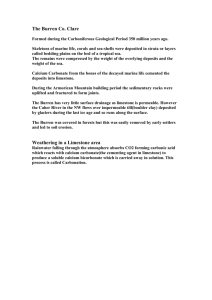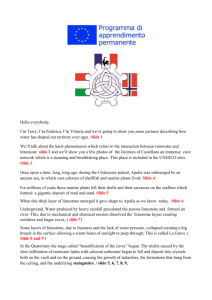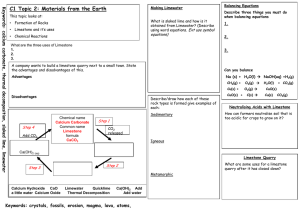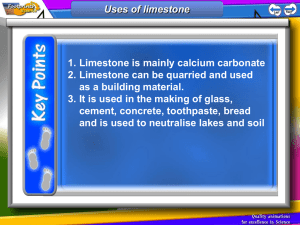The limestone inquiry
advertisement
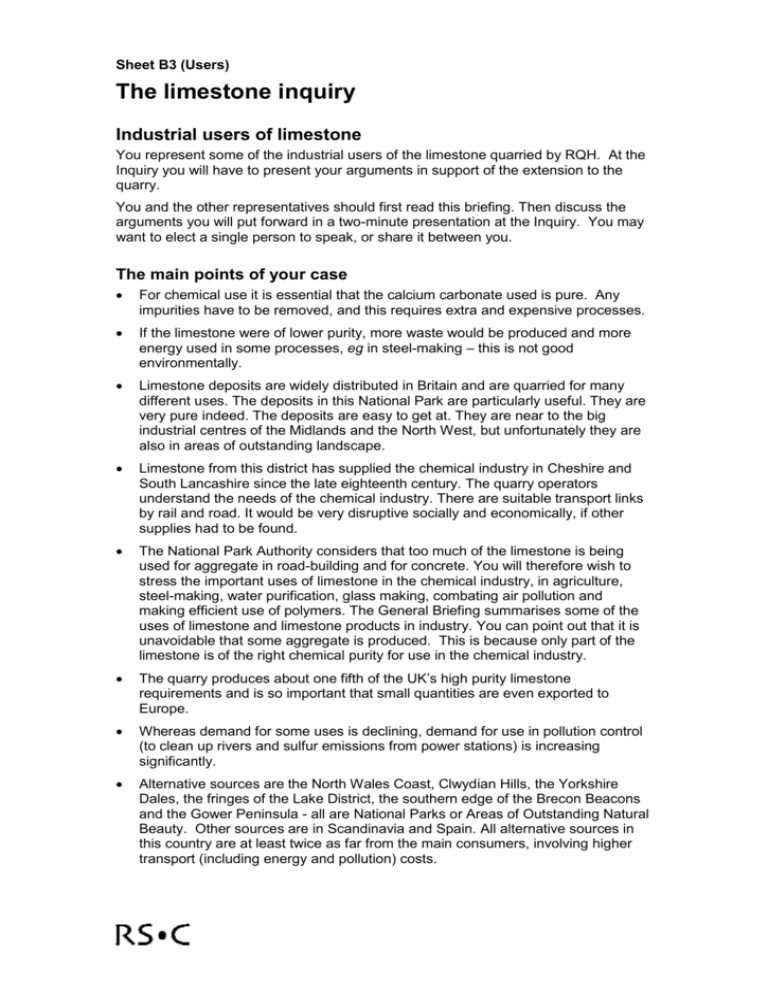
Sheet B3 (Users) The limestone inquiry Industrial users of limestone You represent some of the industrial users of the limestone quarried by RQH. At the Inquiry you will have to present your arguments in support of the extension to the quarry. You and the other representatives should first read this briefing. Then discuss the arguments you will put forward in a two-minute presentation at the Inquiry. You may want to elect a single person to speak, or share it between you. The main points of your case For chemical use it is essential that the calcium carbonate used is pure. Any impurities have to be removed, and this requires extra and expensive processes. If the limestone were of lower purity, more waste would be produced and more energy used in some processes, eg in steel-making – this is not good environmentally. Limestone deposits are widely distributed in Britain and are quarried for many different uses. The deposits in this National Park are particularly useful. They are very pure indeed. The deposits are easy to get at. They are near to the big industrial centres of the Midlands and the North West, but unfortunately they are also in areas of outstanding landscape. Limestone from this district has supplied the chemical industry in Cheshire and South Lancashire since the late eighteenth century. The quarry operators understand the needs of the chemical industry. There are suitable transport links by rail and road. It would be very disruptive socially and economically, if other supplies had to be found. The National Park Authority considers that too much of the limestone is being used for aggregate in road-building and for concrete. You will therefore wish to stress the important uses of limestone in the chemical industry, in agriculture, steel-making, water purification, glass making, combating air pollution and making efficient use of polymers. The General Briefing summarises some of the uses of limestone and limestone products in industry. You can point out that it is unavoidable that some aggregate is produced. This is because only part of the limestone is of the right chemical purity for use in the chemical industry. The quarry produces about one fifth of the UK’s high purity limestone requirements and is so important that small quantities are even exported to Europe. Whereas demand for some uses is declining, demand for use in pollution control (to clean up rivers and sulfur emissions from power stations) is increasing significantly. Alternative sources are the North Wales Coast, Clwydian Hills, the Yorkshire Dales, the fringes of the Lake District, the southern edge of the Brecon Beacons and the Gower Peninsula - all are National Parks or Areas of Outstanding Natural Beauty. Other sources are in Scandinavia and Spain. All alternative sources in this country are at least twice as far from the main consumers, involving higher transport (including energy and pollution) costs.

